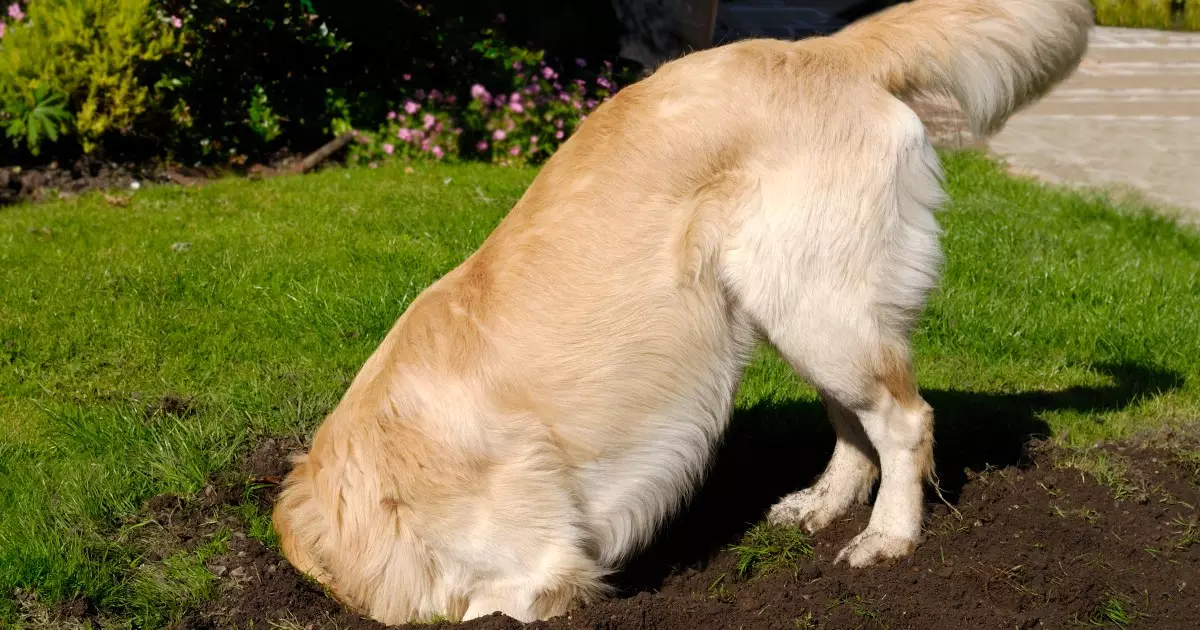Dogs, with their playful demeanor and enthusiastic spirit, often express their natural instincts in ways that can be both charming and challenging for their human companions. One particularly puzzling behavior is digging, which can manifest in various forms around the yard. Understanding why dogs dig is crucial for any dog owner seeking harmony between their beloved pet and their garden. This article explores the underlying reasons for this behavior, provides actionable solutions for dog parents, and considers the potential for creating a healthier environment for both dogs and gardens.
At the heart of a dog’s digging instinct lies an array of reasons that vary by breed, age, and individual personality. For example, certain breeds, such as Huskies and Chow Chows, have a long history tied to temperature regulation; they will dig to create cooler spots during hot weather. Similarly, many terrier breeds are instinctual diggers, originally bred for hunting and rooting out burrowing creatures like gophers or moles. This innate drive to unearth and explore is not just a whimsical quirk, but a fundamental trait embedded deep within their DNA.
Moreover, unneutered male dogs often look for ways to escape their yards, particularly in pursuit of female dogs in heat, which can lead to digging under fences. In contrast, the common issue of boredom can also motivate dogs to dig. Lack of stimulation or engagement leads dogs, particularly those with youthful exuberance, to fill their time by tearing up the garden. A juvenile dog with pent-up energy is more likely to resort to digging, transforming a once pristine yard into a chaotic patchwork of holes.
Recognizing the distinct reasons behind your dog’s digging habit is essential for implementing effective solutions. If your dog digs during the summer, assessing their comfort in heat is necessary. Pets left outdoors without adequate shade or hydration will seek their own solutions for cooling down. Alternatively, dogs who exhibit destructive digging when left alone could benefit from a more engaging, enriched environment. It’s important to investigate the context in which the digging occurs: is your dog alone? Are they anxious? Are they simply bored?
If your dog resorts to digging out of boredom, addressing this issue with a structured routine that includes exercise, playtime, and mental stimulation can do wonders. Introducing interactive toys or puzzles can keep their minds occupied, while regular physical activities like long walks, fetch, or agility training can channel their energy constructively.
Once you’ve established the reasons for your dog’s digging, the next step is finding solutions. As a dog parent, you typically have two approaches to tackle this issue: eliminating the reason for the behavior or redirecting it to preferred areas.
For instance, if heat is a significant motivator for digging, consider providing a comfortable indoor environment during hot days, or set up a small kiddie pool for refreshing dips. If your dog is persistent about digging to hunt for underground animals, professional help can manage pest control in your yard.
Redirection can be highly effective for boredom-induced digging. Establish a digging pit where your dog is allowed—and encouraged—to dig. Use attractive incentives, like buried toys or treats, to entice them into this designated space when they feel the urge to dig in your garden. Providing regular supervision during their visits to the digging pit will reinforce the idea that this is their area for digging, helping them learn acceptable behaviors.
Don’t overlook the importance of social engagement as well. Setting up playdates at local dog parks or arranging regular walks with other dog owners will not only provide your dog with stimulation but also improve their socialization skills, further enhancing their overall well-being.
As a dog owner, implementing a combination of strategies can effectively curb undesirable digging behaviors while ensuring your dog’s happiness. Building a sturdy fence with buried chicken wire can physically deter dogs from digging beneath barriers. Equally important is providing adequate opportunities for interactive play and consistent exercise to maintain their mental and physical health.
Creating a designated digging space, offering socialization, and maintaining a stimulating environment will pave the way for a happier dog and a more harmonious home. By understanding the reasons behind your pet’s digging tendencies and managing their behavior effectively, you can preserve both your yard’s integrity and your four-legged friend’s joyful spirit. Ultimately, embracing a proactive approach ensures a better quality of life for you, your dog, and your home.

